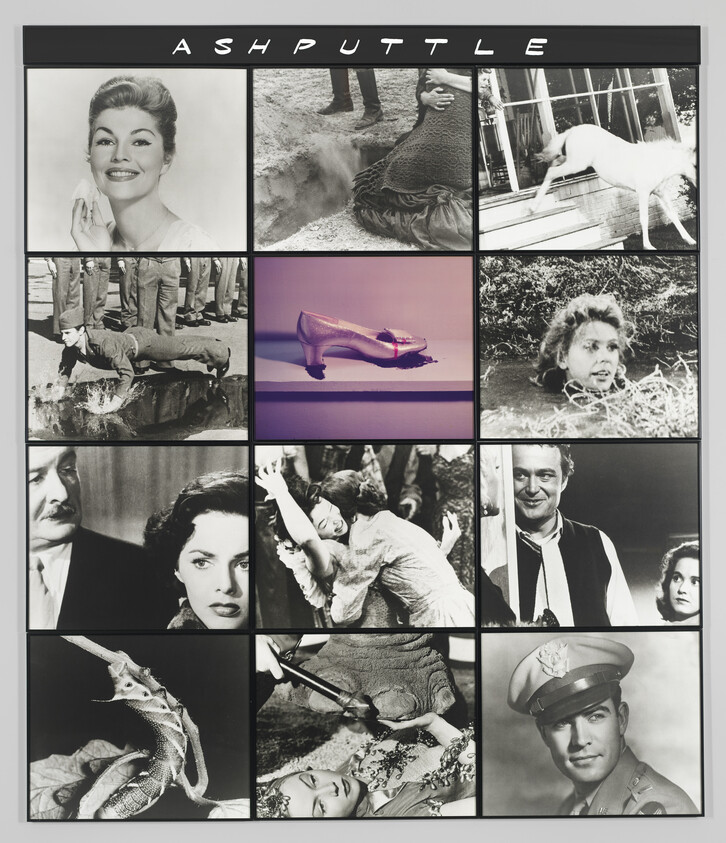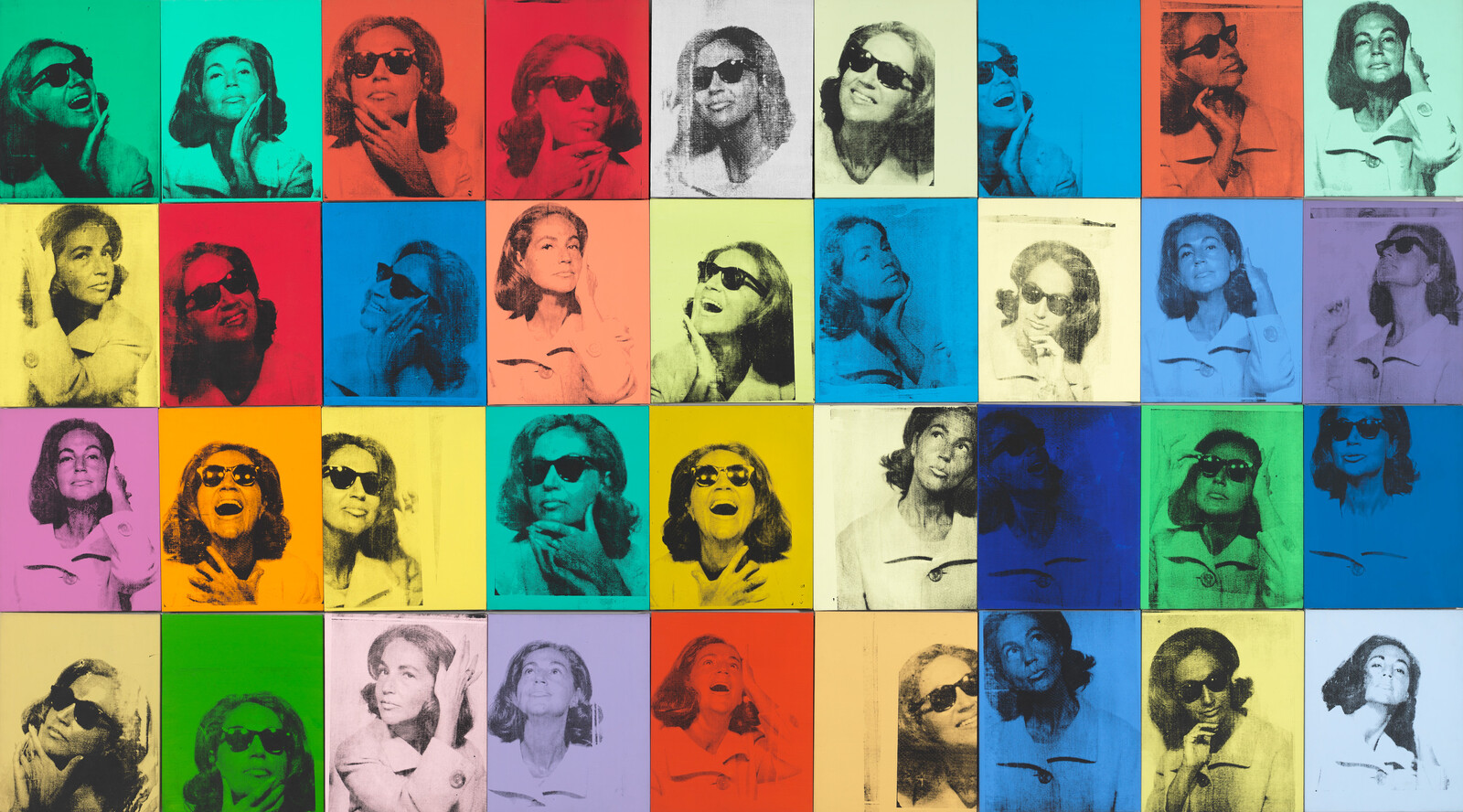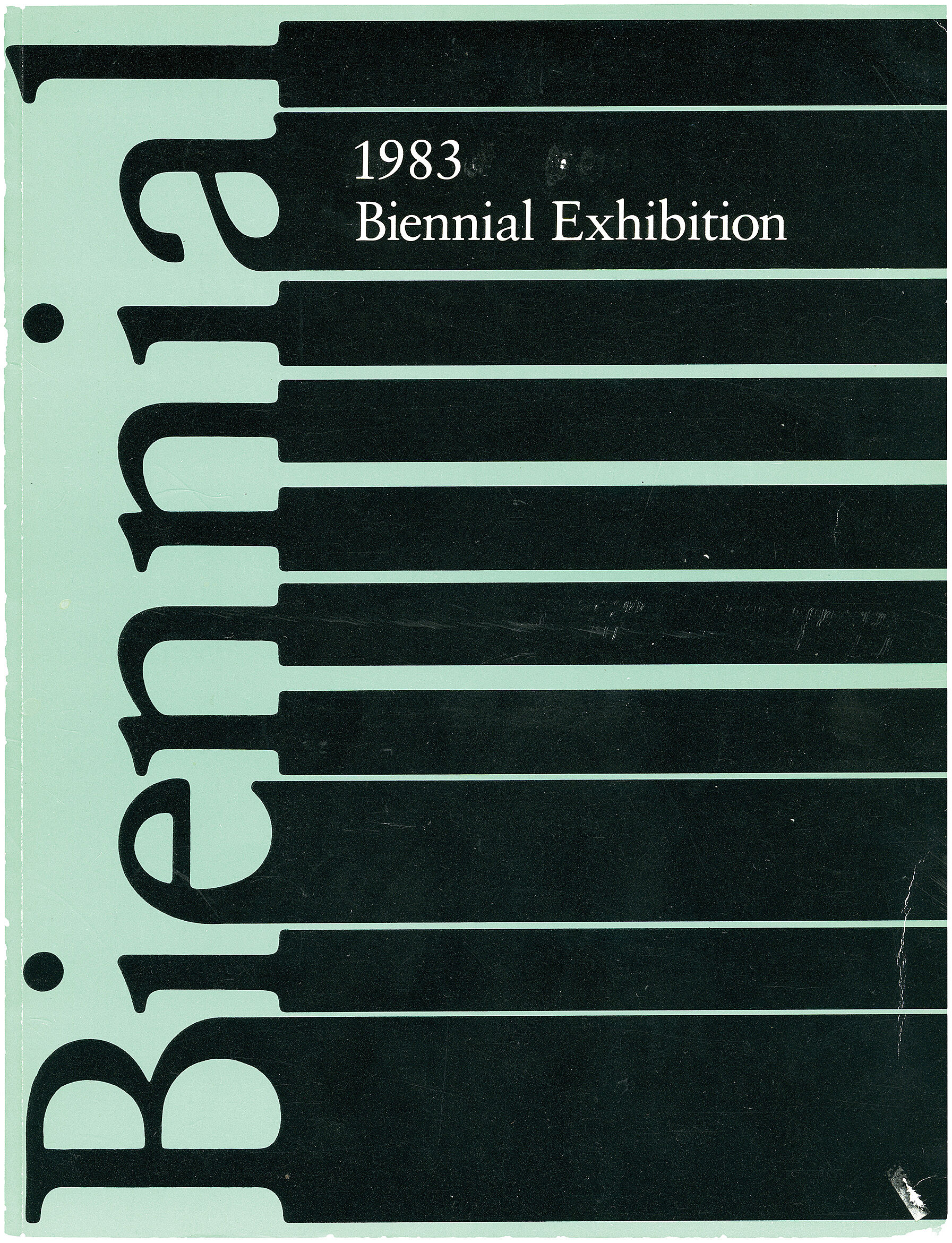In Ashputtle, one of six works based on the fairy tales compiled in the nineteenth century by the Brothers Grimm, John Baldessari uses appropriated imagery to question traditional narrative structure. The title is a clever variant of Aschenputtel, the German name for the fairy-tale character Cinderella. In this work, the artist placed eleven black-and-white film stills in a grid arrangement. One of the images in the center section is a color snapshot of the emblematic slipper; the other stills come from a variety of old films, none of them having anything to do with Cinderella. The images encourage us to seek narrative connections: how, for example, do the male authority figures—the military officers and the father—fit into the Cinderella story? But the cropped nature of the film stills and their seemingly arbitrary juxtapositions leave the answers to all such questions open-ended.
Not on view
Date
1982
Classification
Photographs
Medium
Eleven gelatin silver prints, one chromogenic print and opaque watercolor on board
Dimensions
Overall (In-Situ): 85 1/4 × 73 1/4 × 1 in. (216.5 × 186.1 × 2.5 cm)
Sheet (a-c): 20 1/16 × 24 in. (51 × 61 cm)
Sheet (d, f-l): 20 × 24 in. (50.8 × 61 cm)
Sheet (e): 19 7/8 × 24 in. (50.5 × 61 cm)
Sheet (m): 3 5/8 × 72 5/8 in. (9.2 × 184.5 cm)
Image (a-c): 20 1/16 × 24 in. (51 × 61 cm)
Image (d, f-l): 20 × 24 in. (50.8 × 61 cm)
Image (e): 19 7/8 × 24 in. (50.5 × 61 cm)
Image (m): 3 5/8 × 72 5/8 in. (9.2 × 184.5 cm)
Accession number
83.8a-m
Credit line
Purchase, with funds from the Painting and Sculpture Committee
Rights and reproductions
© John Baldessari
Permission courtesy of the artist



